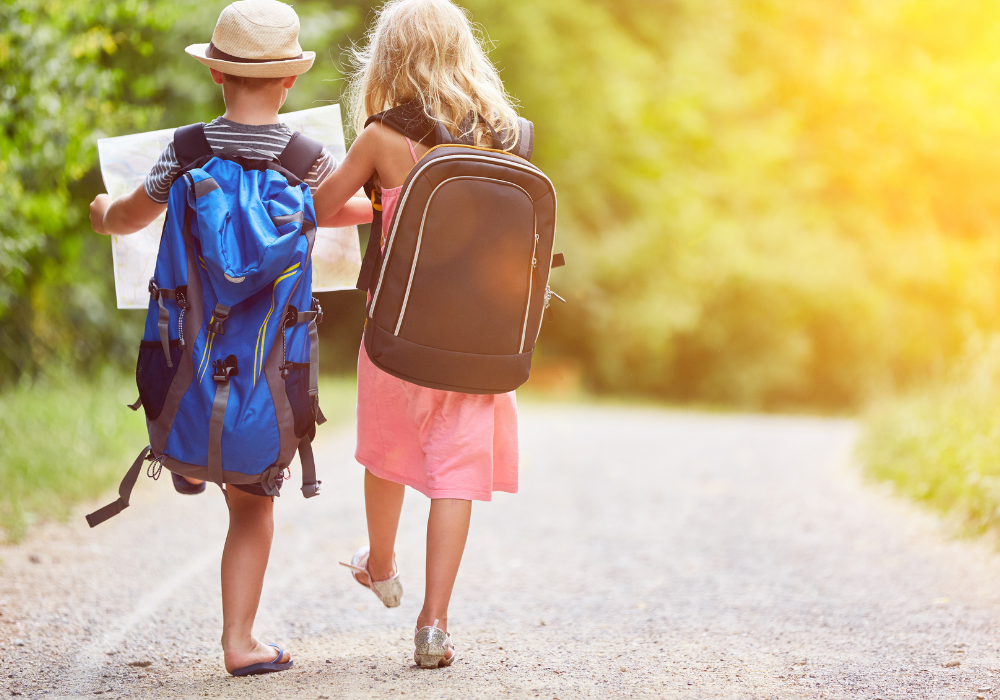
Schools Continue to Announce Closures Due To 40°C Weather
18.07.22Parents are split on whether or not they want their children to be in school during the extreme weather.
The heatwave is set to disrupt children’s lessons as headteachers in England continue to announce school closures due to the extreme weather while others plan to open their gates as normal on Monday morning.
Ministers are advising schools to remain open despite the Met Office issuing its first red warnings for extreme heat for Monday and Tuesday and predicting a 50 to 60 per cent chance of temperatures reaching 40°C in the UK.
While the temperature may be easier to regulate in schools, some parents are concerned about sending their children in during what the UK Health Security Agency is calling a “national emergency”.
One mother from the New Forest said she was worried her eight-year-old son will “overheat in a horrendously hot classroom and not have the chance to voice what he needs”.
“And that they’ll be in the sunshine at playtime and not drinking or applying suncream. I believe the children should be home where we can keep them cool and more comfortable,” said Kerri Watt.
It is more difficult for children to control their body temperature than adults because they do not sweat as much, leaving them more at risk of becoming unwell.
Schools across several counties are set to be closed, though Ms Watt has not heard of any in her local area.
She said: “I believe they absolutely should close on Monday and Tuesday… A lot of people are concerned that it means no childcare – my priority however is the children’s comfort and safety.”
Some schools that are remaining open have announced measures to improve children’s comfort, such as allowing them to wear their PE kit or looser clothing. Others will send children home at around lunchtime while some have announced blanket closures for both Monday and Tuesday.
However, there are concerns about children’s learning after lessons were severely disrupted during the pandemic.
Shadow education secretary Bridget Phillipson told Sophy Ridge On Sunday on Sky News that children should be in school and that headteachers would be doing everything possible to keep schools as cool as possible.
She added: “I think children have missed out quite a lot already in terms of their education and it’s right for them to be there.”
Yelena McCafferty, from Lincolnshire, echoed this sentiment, telling i that she was happy for her 15-year-old son to remain in school “as our children have already lost a lot of classroom time during the pandemic”.
“Schools can mitigate any negative effect of the heat as my son’s secondary school is doing by introducing hot weather arrangements. For example, schools can make sure cool water is available, use air-conditioned rooms, shady areas, introduce a short-sleeve order.
She added: “I think everyone needs to learn the skill of adapting and using common sense again and not to rely on the Government to dictate instructions every time something unusual is forecast for a couple of days.”
Experts said schools faced a raft of complexities when it came to responding to extreme heat.
Professor Hannah Cloke, who works in floods, heatwaves and natural hazards at the University of Reading, said: “People’s homes and small flats in particular have become a very, very dangerous place to be. It is an equity issue. There are people who have larger houses which can help keep a cool room and have probably got access to cooling devices but for those children who will be in small hot flats, that might not be the right decision.”
One public health adviser who wished to remain anonymous, agreed that school cancellations depended on their individual circumstances: “There will be schools where the classrooms stay cool, maybe because they are shaded or because they’re in old buildings which often have a much higher thermal mass, which means they don’t heat up that much.”
He suggested one way to keep classrooms cool was for teachers to open all windows and doors early in the morning before later closing them to regulate the temperature.
Nicola, a reception teacher in Derbyshire, said the priority for school staff was that pupils remain safe in the heatwave.
“For the vast majority of children, especially younger children, that would probably be at home with an ice lolly and a paddling pool in the shade where someone can have more of a focus on them and they can wear just their pants if needs be. Then the children who need to be in school can be in smaller numbers thus making the environment safer for all. Teachers are always made out to be lazy and wanting time off but all we care about is the children being safe. I think we want support and understanding. Blanket closing schools would cause bigger problems but it would probably best to open to working parents who need it and vulnerable children who would be safer in school.”
By Serina Sandhu
COPYRIGHT © Abode2 2012-2024











